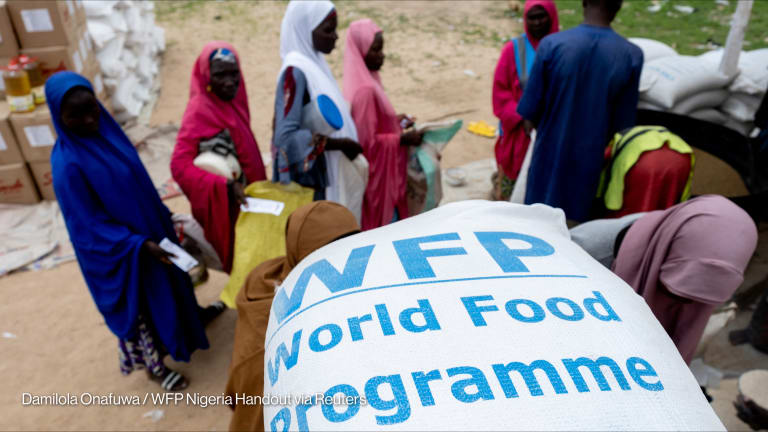
NAIROBI — With the impacts of climate change becoming more pronounced in Africa, the continent has experienced cycles of extreme weather, including droughts, floods, and cyclones that are fueling widespread food insecurity. This year, food insecurity was further exacerbated by COVID-19, through disruptions in trade and increases in prices.
Despite the challenges, Agnes Kalibata, president of the Alliance for a Green Revolution in Africa, said that the continent was spared the worst-case scenario this year as the COVID-19 pandemic coincided with a year of generally good rains, which resulted in significant stability in food production.
“The impact of COVID will really have a huge multiplier effect, should we have another drought that prevents us from having a good harvest.”
— Agnes Kalibata, president, Alliance for a Green Revolution in Africa“We were lucky that the pandemic happened at a time when we were on the good side of the rains,” she said.
But this luck could soon run out, as there is growing concern that widespread drought could hit areas of Africa next year. If this were to happen, the ability to move food around the continent amid pandemic restrictions could be further complicated by reduced food production and rising prices, multiplying the existing food insecurity caused by COVID-19.
“I think the impact of COVID will really have a huge multiplier effect, should we have another drought that prevents us from having a good harvest,” Kalibata said.
Kalibata, who is also the United Nations secretary-general's special envoy for next year’s “Food Systems Summit,” added that the predicted poor rains will likely have an effect on the volume of food available and access to this food in the second half of next year.
“If we don’t have a good season in March, that usually influences the yields for the rest of the year. Then we have a problem,” she said.
To prepare in the coming months, national governments and the private sector should start building up food reserves in countries. At a community level, farmers should focus on reducing post-harvest loss and increasing climate-smart agricultural practices, such as rainwater harvesting, she said. National weather forecasting systems should also be strengthened so that communities are given ample time to prepare for dry weather.
In the past, when drought hit pockets of Africa, there were always countries able to provide surplus to other nations in need. But the pandemic has hampered the movement of food, making this a less effective system to fall back on.
“Those challenges that are imposed by the presence of COVID will still be in place [next year], and movement of food will still be restricted from country to country,” Kalibata said, adding that improving border management systems should also be a key priority in the coming months.
“How we protect and allow trade volumes to move forward is going to be very important,” she said.
For Kalibata, fast-tracking the rollout of vaccine distribution campaigns to the continent is critical. Without vaccines, people will continue to protect themselves by restricting movement, thereby hindering trade.
Q&A: UN envoy on building back a better food system
Even before the COVID-19 pandemic hit, global hunger levels were on the rise. Agnes Kalibata discusses why food system reform will look different from community to community.
The agricultural system in Africa is also very dependent on small and medium-sized enterprises, which facilitate the movement of food from rural areas to cities, but many have closed during the pandemic due to a lack of access to funding and weak markets. Getting more access to capital for these businesses is crucial, Kalibata said.
Governments will need to work to proactively identify potential hot spots of food insecurity in their countries and support people with social protections such as cash transfers or food aid, she said.
“There's a whole lot of adjusting that needs to be done at the farm level, household level, and at country level so that can we start averting some of these challenges that might happen,” Kalibata said.








